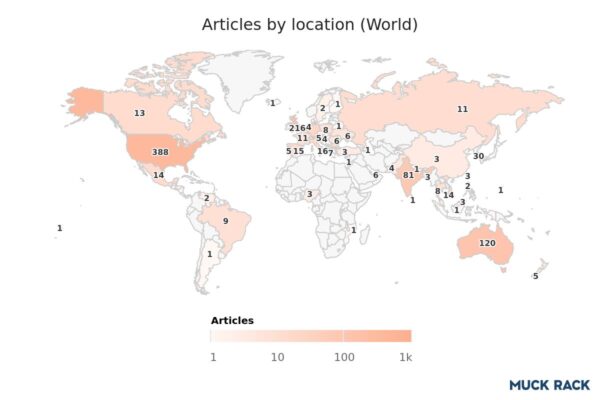Joan Najita (NOIRLab)

As described in a recent press release, DESI has found subtle hints that dark energy, once assumed to be constant in time, may instead be evolving. Spectra that probe the past 11 billion years of cosmic history suggest that dark energy appears to be weakening, becoming “less pushy” over time. That appears to be the message from the first year of DESI data when interpreted in combination with other data, i.e., supernovae and the cosmic microwave background. The news was covered in more than 1200 articles written in over 30 languages across the globe.
While DESI scientists caution that it’s too early to be certain, astronomers and physicists are excited by the news and the possibilities ahead. “If it holds up, this is a very big deal,” said Adam Riess, one of the discoverers of dark energy, speaking to New Scientist: “It may be the first real clue we have gotten about the nature of dark energy in 25 years.” Michael Turner, who coined the term “dark energy,” told the New York Times, “the possible evidence that dark energy is not constant is the best news I have heard since cosmic acceleration was firmly established 20-plus years ago.”
The original discovery, in 1998, that the expansion of the Universe is accelerating rather than slowing with time, could be understood as evidence that the vacuum of space possesses a tiny amount of energy of its own, i.e., a “dark energy.” That idea found an echo in an earlier proposal from Einstein of a “cosmological constant,” a concept that has been at the heart of our standard model of the Universe for the past two decades.
The model has been popular. In finding explanations for how the world and the Universe works, physicists sometimes use aesthetics as a guide and are drawn to explanations that have a simplicity or elegance, often of a mathematical kind. The standard model fits the bill. Explaining the attractiveness of the standard model and the role of the cosmological constant, Licia Verde told Quanta magazine: “It’s simple. It’s one number. It has some story you can attach to it. That’s why it’s believed to be constant.”
The new DESI results shake that foundation.
If dark energy isn’t a strict constant, who knows how it evolves. That uncertainty, and the potential unshackling from a cosmological constant, opens a richer set of potential futures for us. If dark energy continues to significantly weaken with time, it may become not only “less pushy,” but perhaps even “sucky,” causing the Universe to contract rather than expand. On the other hand, it may also grow stronger with time or possibly just fade away.
Commenting on these options, Durham University Professor Carlos Frenk told the Guardian that if DESI’s hints are right, our earlier understanding “goes out the window and essentially we have to start from scratch, and that means revising our understanding of basic physics, our understanding of the big bang itself, and our understanding of the long-range forecast for the Universe.”
The news may be soothing to some of us, at a human level.
In covering the DESI results, NPR characterized our current model of the Universe as painting a bleak picture of the future, i.e., that if dark energy is constant, it “will continue to push everything in the Universe apart. So much so that one day other galaxies won’t be visible from Earth. Even the stars in our own galaxy will die out, leaving behind a cold dark nothing…” Pretty depressing. But Priya Natarajan told NPR that the possibility of a changing dark energy opens the way to a happier ending: “Our fate may not be as lonely and desolate and grim as we imagine.”
Our understanding of exactly what the future holds depends on what we learn about whether and how dark energy is evolving. We should know more soon. The reported results are based on just the first year of data from the DESI survey, which is designed to extend over 5 years. So stay tuned!
Read other news reports on the recent DESI results here.